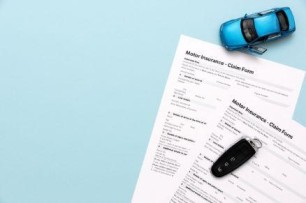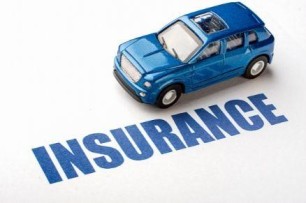General Insurance Blogs, Articles & Updates by - Magma HDI
Have us call you
- RENEW YOUR POLICY
- BUY NEW POLICY

Insurance fraud awareness: Prevention tips for a legitimate insurance policy
With technological advancement moving at an incredible pace, it becomes challenging to see the downside of such progress. All this growth and expansion in every industry has made it difficult for consumers to keep track of legitimate companies with genuine offers, deals, memberships, discounts, and much more.
And with the spread of misinformation across multiple social media channels and a lack of helpful and authentic information, it has become easier for scammers to cheat innocent consumers by misusing their identities and personal information.
Have these scammers spared the insurance sector? Unfortunately, not. These scams are framed so perfectly that it becomes tough for the customer to identify whether the call, message, or email is warrantable and authorised. While the insurance industry is tightening its security measures to avoid all kinds of data breaches and ensure that the consumer's privacy is not invaded, there are a few ways in which you, as a customer, can protect your personal information.
This blog will discuss the safe practices that customers must follow to prevent falling prey to frauds. So, without ado, let's get started.
1. Proper policy authentication is a must:
There are three steps involved in determining the legitimacy of a policy.
● Step 1: The first step consists in scanning the QR code printed on the policy copy provided to you.
● Step 2: This step entails contacting the call centre using the designated toll-free number.
● Step 3: The final step is to visit the nearest branch office with a copy of the policy you possess.
These steps ensure that the policy you decide to purchase is legal and in compliance with the rules and regulations, and there are zero risks of any scam or dubious activities.
2. Be careful while making payments:
When it comes to paying the premiums of your vehicle insurance, or any insurance for that matter, say no to cash payments. Please ensure that you use digital modes or platforms of payment.
Now, what constitutes digital payments? You can use your debit or credit cards, contactless payments (e.g., NFC), QR codes (UPI), digital devices, net banking, mobile money/e-wallets, etc. These digital payment methods make it easier for the sender and the receiver to track the payment and fetch the payment details in case of a mishap.
The records for cash payments can easily be created or destroyed and might not be considered legal and legitimate proof when required to be tracked during financial blunders. Plus, large amounts of cash are dangerous to carry/maintain. Also, digital payments come with additional layers of security like SSL, OTP verification, 2-step authentication, and more, making it challenging for fraudsters to hack into your personal information.
3. Stay away from policy mis-selling:
There have been several cases where potential customers have been convincingly promised benefits that are too good to be true. As a consumer, you need to refrain from mis-selling the policies. How can you detect if the policy being sold to you is a scam? You need to be very careful about the kind of offer the seller is trying to convince you of. If the policy offers and features seem exaggerated, avoid entertaining them from that point onwards. It would be best if you also were cautious of any combo offers the seller is trying to sell-bundling up insurance with mutual funds, fixed deposits, lockers, or other financial instruments. And read the policy document carefully before signing up for it or making any purchase.
4. Protect your identity proofs:
Several documents are considered legitimate identity proofs by the government of India. These documents are prioritised differently during different procedures. Despite that, you must ensure that you safeguard these identity proofs as such documents can easily be stolen and used for criminal for other illegal activities, creating a huge legal issue.
If your health insurance membership card is misplaced, lost, or stolen, you must report it immediately to the designated insurance provider. If you encounter any fraud or fraudulent person, you should instantly register a complaint with your insurance company. The Insurance Regulatory and Development Authority (IRDA) or your insurance provider will never call or approach you for any offers against the insurance policies.
5. Necessary checks on claim process:
Addressing all safety checkpoints is a half-done job. It is crucial to authenticate and ensure a fair claim procedure to be applicable for enjoying all the benefits enlisted in your insurance. The essential tips for validating necessary checks on the claim process include the following:
● Reading the estimate copy carefully and clarifying any doubts with your insurance agent/provider.
● Going through all the messages and emails received from your insurance company.
● Self-attesting all the claim documents before submitting them for further processing.
● Don’t sign any blank claim form, and always keep a copy of the documents you provide to your insurance provider.
This is all about the prevention tips for a legitimate insurance policy that you must know. In light of such scams and frauds being a nuisance for the companies and the consumers, both parties must be aware of their rights and any potential indications of fraud that need to be kept an eye on.
For further information on various types of insurance you might need, the benefits, how to purchase, and much more, do visit our website https://www.magmahdi.com
Disclaimer: The information provided above is for illustrative purposes only. To get more details, please refer to policy wordings and prospectus before purchasing a policy.

What are the current deductibles in car insurance you must know about
Whether a two-wheeler or a four-wheeler, owning a vehicle is a matter of pride and sheer joy. When choosing your vehicle, the engine capacity, mileage, pickup, and colour are some of the few factors you consider. One lesser talked about or thought about aspect is your motor insurance. Choosing the best motor insurance company in India should be your next priority after finalising the car because your dearest asset needs a reliable safety shield.
There are various hidden conditions and additional costs associated with insurance. It may be in the form of add-ons or premiums, but more often than not, we are confused about the final payments and all the benefits of getting motor insurance.
In today's article, we will talk about deductibles in car insurance and all you need to know about it.
What are deductibles?
An amount you are liable to pay from the total claim amount is known as deductibles in car insurance. Typically, if the repair costs you twenty thousand and the deductible is two thousand, you will have to pay two thousand, and the insurer pays the remaining eighteen thousand.
The higher the deductible amount, the lower your overall premium amount will be. Although promising a higher deductible would mean you will have to spend money from your pocket. Hence, analysing your monetary situation and the ability to pay the deductible is crucial to understanding the amount you might have to pay in case of accidents or damages.
Types of deductibles.
There are two types of deductibles from which you can opt from:
1. Voluntary deductible set by yourself
2. Compulsory deductible levied by the insurer
What is a voluntary deductible?
The amount you decide to pay from your pockets, depending upon the total insurance amount, is a voluntary deductible. As the risk that the insurer will take is lower, voluntary deductibles are a great way to get your premium lowered. Opting for a higher deductible will bring down the value of your insurance premium amount.
Before finalising your policy paper, deciding on a deductible amount you will pay yourself in case of any damages is imperative. This deductible is applied to every claim made after activation of the insurance.
What are compulsory deductibles?
The policyholder is not the one making decisions on these deductibles. The insurance board of India has set a value based on the engine's power or CC in these vehicles. It can vary from anywhere between one thousand to two thousand rupees. The premium amount stays unaffected irrespective of the compulsory deductibles.
When buying car insurance, two costs primarily add up. The first is the premium amount you have to pay at the beginning of the policy renewal, and the second is the compulsory deductibles you pay for every claim as a deductible.
Why is it essential to levy deductibles?
Many people partake in fraudulent activities to skip maintenance costs and reap maximum benefits from insurance companies. Manipulating evidence or staging accidents are part of moral hazards. Such situations can be avoided if a deductible is charged per claim.
Another reason insurance companies practice using deductibles is to provide a buffer between actual accidents and minor damages. Insurance providers offer financial support to people when they claim an accident or theft. However, the compulsory deductibles provide a cushion against unnecessary claims and financial stress for an insurer. Deductibles are used to protect them from such overwhelming situations.
These points are sure to help you understand deductibles and insurance policies better. Do thorough research before you buy your insurance policy. Choose the best motor insurance company in India and add value to your prized possession. Time invested in buying reliable insurance will bring you the best returns during tough times.
Click HERE to know more about the best motor insurance company in India.
Disclaimer: The information provided above is for illustrative purposes only. To get more details, please refer to policy wordings and prospectus before purchasing a policy.

Cold or a hot shower? Which one is best for you
Taking a shower is quite refreshing, especially after retiring from a hectic day or a high-voltage workout regime. The shower makes you feel better whether you prefer long, steamy stints or quick, frosty ones. While both hot and cold showers have their benefits, the optimal option is somewhere in the middle.
Let's discuss them one by one. First, let's talk about the merits and demerits of cold showers.
Merits:
1. Recover after a workout:
Ice baths and cold showers have gained popularity in the fitness regime for post-workout recovery. Cold water possesses regenerative properties that help your muscles to repair after an intense workout.
2. Reduce itching:
Due to the cooling and anti-inflammatory properties of cold water, a cold shower can help lessen itching if you have sensitive skin.
3. Enhance your body's resistance:
The immune system experiences a mild stress response when exposed to cold water, which helps increase resilience. Therefore, your body may react better when attacked by an infection.
4. Protects your skin and hair:
Your skin and hair do not lose their natural oils when you take a cold-water shower. Pores are sealed shut by cold water, which tightens the skin. Additionally, it inhibits hair fall and is kinder to your hair.
5. It makes you more alert and energetic:
You are startled awake in the morning by the shower's cold-water spray hitting your body. This shock will make you more alert and energised by raising your heart rate and oxygen intake.
Demerits:
Taking a cold shower can make you feel worse when you're sick. You will feel colder and take longer to warm up if you already have a cold, cough, or fever. People with joint pain can face problems like cramps after having a cold shower.
Let's talk about the advantages and disadvantages of a hot shower.
Merits:
1. Relax muscles:
After a workout, a hot shower might assist in relaxing the muscles and speed up healing.
2. Relieve respiratory symptoms:
A hot shower might be a helpful approach to relieve stuffy nose symptoms. This is due to the steam produced by hot showers loosening the mucus in your throat, nose, and chest.
3. Improve sleep:
According to research, a hot bath or shower before bed can help you sleep better quickly.
Demerits:
1. Taking hot baths might make your skin dry. When your skin comes into touch with extremely hot water, the keratin cells that make up its top layer are destroyed. Your skin becomes dry because moisture cannot be trapped.
2. Additionally, taking hot showers can make skin disorders like eczema worse. This is because hot water causes the skin to dry out excessively. Even if you don't have a skin issue, it might still make your skin itchy.
3. You should avoid hot showers if you have cardiovascular disease or high blood pressure. These issues might worsen if the water is excessively hot.
Which is best for your health – a hot or cold shower?
Showers, whether hot or cold, offer advantages of their own. If possible, take a warm shower before applying a moisturiser to your body while it's still damp. Cold showers can soothe irritated skin, while hot showers help relax the muscles and clear the nasal channel.
Sometimes, hot showers can cause skin problems as well. You can choose between the two depending on the weather and any health issues you may have. In the winter and when you are sick with a cold or fever, you should avoid taking a cold shower. If you don't enjoy chilly showers, ensure the water is lukewarm.
Keeping everything in mind, a person should prioritise his health, whether by having the right shower, doing daily exercise, eating a healthy diet, or purchasing the best health insurance plans in India for additional safety and medical emergencies. Health insurance will make you feel more prepared financially to deal with such circumstances and manage medical expenditures since treatment costs are rising daily.
Click HERE to buy the best health insurance plans in India and safeguard your finances.
Disclaimer: The information provided above is for illustrative purposes only. To get more details, please refer to policy wordings and prospectus before purchasing a policy.

How many car insurance claims can be made every year
Accidents never come with a warning. And in such cases, having car insurance is a considerable relief. Otherwise, you will have to bear all the financial costs and suffer through the stress, which will never help the problem.
It is always advisable that before buying an insurance policy, you should know all the details and information. And to get the complete information, you need to ask all the right questions to your designated insurance provider. This helps you to know about the benefits you can avail and the steps to take in case you get into trouble.
Listing down all these things has us sweating. All these unforeseeable circumstances sound so taxing, don’t they? This blog has all the information you need regarding these crucial questions.
1. The number of insurance claims you can make:
It’s a mix and match. The higher the number of insurance claims you make in a year, your insurance premiums will increase. Most of the time, the number of insurance claims is not limited and mentioned in your car insurance policy. Your “no claim bonus” provided by your designated insurance provider reduces if you file a claim during a year. It is optional, so you are allowed to forfeit it. It would be best if you were mindful of your zero depreciation cover and other add-on benefits, as some insurance provider companies have a limitation on the number of claims in such covers.
2. Is there any particular number:
There is no particular answer to the question, “how many car insurance claims can be made every year.” It ultimately depends on the type of damage, the grade of damage, the type of policy cover you have under the insurance, and your insurance provider’s norms and regulations.
Although, it is advisable to save your insurance claims for damages that would cause you some financial stress. Do not file insurance claims in case of minor damages that bear low costs, and you can easily afford to get it sorted.
3. What happens if you file several claims:
Suppose you end up filing multiple claims. Are you worried about the consequences and what sort of situations might arise regarding your car insurance? We have discussed the no-claim bonus. Your rates will lower if you do not file any claims in a particular insurance period or year. You will have to bid farewell to your no-claim bonus if you file too many claims.
So, it is advised to only file claims if they are way beyond your affordability or more than your no-claim bonus. Filing too many claims will not only make you devoid of no claim bonus but also affect your premium rates which will skyrocket in case of multiple claims. This happens as these claims make you appear on a riskier end for your designated insurers.
Other consequences include the depreciation rate not being taken into account by the insurance company in case of zero percent depreciation coverage. Don’t file a claim if your repair charges are lesser than the deductibles.
That was all about how insurance claims you can make in a year. We hope this blog has provided the best insights. We suggest an essential tip for buying online motor insurance for first-time buyers. As there are plenty of options to explore, you can conveniently purchase a plan that best suits your requirements and budget.
Click HERE to know more about online motor insurance.
Disclaimer: The information provided above is for illustrative purposes only. To get more details, please refer to policy wordings and prospectus before purchasing a policy.

Binge eating disorder: Six innovative ways to control it
With changing circumstances and lifestyles, more people are prone to eating junk and unhealthy foods that can affect their behaviour adversely. Binge Eating Disorder, or BED, one of the most common eating disorders in the world, can tremendously affect your body.
The usual symptoms of binge eating disorder refer to excessive food consumption even when you're not hungry. The risk of Binge Eating Disorder in children and young adults is increasing with every passing day. This makes it a critical case of worry for everyone across the globe. The only optimum solution to this problem is regulating your eating habits. It is always beneficial to keep track of the best health insurance in India. This way, you will be covered health-wise wherever you go.
Let's look at the six practical ways to tackle BED.
1. Do not skip meals:
It is essential to adhere to a strict eating schedule throughout the day. The four-square meals a day are essential. None of them should be skipped at any point. If you skip a meal, you are more likely to have hunger pangs throughout the day.
This can stimulate cravings and give rise to binge eating. If you consume only one large meal throughout the day and binge eat in between, your blood sugar levels will also malfunction.
2. Drink water:
Hydration is one of the important characteristics of a healthy body. Water is essential in decreasing cravings. It helps in reducing overeating and maintaining a healthy weight. With an increase in water intake, hunger pangs will decrease as well. You should always pay attention to your body's call to thirst.
Although the level of water you should consume may depend on many factors, drinking water at regular intervals is a healthy habit to practise. Also, drinking water before meals can burn calories.
3. Practice meditation:
Mindfulness is a technique that involves being aware and fully present in the moment. Through mindfulness, you'll be able to listen to your body better. It is a great way to train your mind to avoid overeating.
It helps you understand what you are feeling and experiencing by making you understand your body better. It will also help you in processing your emotions well. When mindfulness is paired with cognitive behavioural therapy, the results are astonishing for BED.
4. Practice yoga:
Yoga is one of the most effective tools in reducing stress and anxiety in the body. With yoga, your body is trained to be emotionally stable. It involves meditation and breathing exercises that add to the overall development of the body.
It is noticed that people who have undertaken yoga in their lives enjoy reduced levels of stress. This can directly correlate to emotional stability and, thus, a reduction in emotional eating. It can significantly reduce the factors responsible for binge eating.
5. Clean the clutter:
The more organised your kitchen looks, the better. Take a day out of your schedule to eliminate all the extra clutter in your kitchen. Throw all the junk food away and replace it with healthy alternatives like fruits, vegetables, and nuts. It will clear your mind and make you more attentive toward healthier food items. Your surroundings will no longer trigger you, and you'll refrain from overeating junk food.
6. Work out for a while:
Physical exercise is highly crucial to your body. It can prevent binge eating to a great extent. Therapy alone cannot help BED patients. When paired with physical exercise, things get significantly different and better. Any physical exercise like swimming, running, biking, jogging, or playing sports can reduce binge eating. It is a step towards a healthier lifestyle.
Keep all the above pointers in mind when tackling Binge Eating Disorder. If you can follow these correctly, you can recover from BED. The battle is long and arduous but not impossible. Regardless, you should also consult with the best health insurance in India beforehand to keep you safe and secure and manage your finances well in any emergency.
Click HERE to buy the best health insurance in India.
Disclaimer: The information provided above is for illustrative purposes only. To get more details, please refer to policy wordings and prospectus before purchasing a policy.

Everything you need to know about hit-and-run accidents
Hit-and-run accidents are frustrating events where a driver causes an accident and flees from the spot to avoid getting into complications. In many such accidents, the driver and the vehicle causing the accident become untraceable even after reasonable efforts have been made to search for them by investigating authorities.
As per the 2020-21 report of the Ministry of Road Transport and Highways, around 14.3% of cases of the total accidents that occurred in India accounted for hit-and-run. Section 161 of the Indian Motor Vehicles Act outlines the guidelines and proceedings in case of a hit-and-run accident.
The victim of such an unfortunate event can get relief by applying for an insurance claim to compensate the damage done to the vehicle. Let us see what we should do to claim car insurance in case of a hit-and-run accident.
1. Note down all important details:
In a hit-and-run case, the aggrieved party should avoid running after the offending car to catch it. If you face a situation like this, your first immediate response should be noting down the car number and other possible details about the car and the driver that can help the police to track him down.
The same applies to a hit-and-run accident in the case of a parked car. You should try to find the registration number of the vehicle involved in the accident by going through all available CCTV footage of the vicinity.
2. Find witnesses:
In some situations, it is possible that you won't be able to spot the accused vehicle and the driver due to mental shock or other damages post-accident. In this case, try speaking to people present at the site and gathering as much information as possible about the vehicle and the driver that caused the accident and fled. This will help you recreate the scene and gather enough information to file a case.
If your car was hit while parked somewhere, try to find any possible witness of the accident. In either case, take the witnesses' names and phone numbers so they can testify for you and help you to get your car insurance claim.
3. FIR:
You must register a First Information Report or an FIR about the accident at the nearest police station to the accident site. The police will then investigate the case and prepare a report. The car insurance company will require a copy of the FIR to process your claim.
4. Procedure:
The first step after you get engaged in a hit-and-run accident is to inform your car insurance company about the accident. Then you need to file an application to the Claims Enquiry Officer of that Taluka. You can appoint an agent as your legal representative to handle the case. In case of death, your family or a legal representative chosen by them will look after the compensation process.
On being satisfied, the Claims Enquiry Officer will submit his report to the Claim Settlement Commissioner. He will further process the report and prepare a sanction report. The Claims Enquiry Officer will communicate the sanction order to the car insurance company.
5. Compensation:
Once the car insurance company is fully satisfied with the evidence and the report, it will cover the repair and replacement charges of the car as per the terms and conditions of the insurance contract. Other than the above compensation, the Central Government has also set up a hit-and-run insurance fund to compensate the victims of hit-and-run accidents.
The numbers of hit-and-run cases have been constantly on the increase in India. In such cases, the claim settlement process under car insurance is a bit lengthy. However, the police should give a report stating that the offender could not be traced before the insurance company settles the claim. Also, the complainant should prove that the offender was at fault and that the accident occurred due to his negligent driving.
Hit-and-run accidents can be terrifying and challenging to recover from. Hence, an active car insurance policy is essential for comprehensive protection. This will secure you and your family from any monetary losses from the accident and ensure that you safeguard your finances.
Click HERE to buy car insurance
Disclaimer: The information provided above is for illustrative purposes only. To get more details, please refer to policy wordings and prospectus before purchasing a policy.

Most answered FAQs for motor insurance policies
Insurance policies are supposed to be understood thoroughly before you purchase them. Their purpose is how they would protect you and your assets against financial damage and decide on premiums and claims. Insurance companies conduct detailed background checks of their policyholders to ensure that they have authentic identities, are not involved in any criminal activities, money laundering, or financial scams, are not victims of identity theft, have a good credit score, are reliable drivers and law-abiding citizens of the country and much more.
Are you someone looking to understand the basics yet the most critical questions that would help you purchase motor insurance? We are here with all you need. In this space, we will discuss the most answered FAQs for motor insurance policies. This information will provide essential pointers you will need to understand if you are new to the insurance world.
1. What does third-party risk policy mean:
Third-party risk policies are necessary insurance policies that would protect the owner against the risks mentioned in the act. The third-party insurance policies compensate for the damages caused to the assets of the third parties or during deaths or accidents of the third parties.
2. Validity of your motor insurance:
You must know about the validity of your motor insurance so you can avail of the benefits on time. Always be up to date with your premiums and renew them to avoid putting your vehicle at risk. This way, you avoid financial burdens in case of unfortunate circumstances. The period of motor insurance from the day it begins is up to a year. This will be displayed in your insurance policy's schedule. Do not forget to read the documents and the listed terms and conditions carefully.
3 . Making claims:
Evaluate and estimate the cost of your damages. In many cases, raising small claims might not be a good idea if the damage costs you a small amount that you can easily bear. Keeping your claims for the future can help you avail them whenever there is a dire need in case of a substantial financial burden. Check the no claim bonus, which comes under your vehicle insurance. Follow through with the estimates and what you might have to forfeit under the bonus. Evaluate carefully and make the decision.
4. What happens during an accident:
If it were being driven by someone else, your car or motor insurance would still be valid to use, given that the person driving your vehicle was granted permission by you for the same. You can use your insurance policy to ensure you do not incur enormous costs for repairing the damages.
Also, vehicles are liabilities too. So, the individual's (the person driving your car) liability insurance can be a huge help in paying for the damages if your motor insurance exhausts its limits during the complete servicing and repairing process. Be mindful of your insurance limits.
5. Selling your vehicle:
If you decide to sell your vehicle, you can hand over the authority of the motor insurance to the new buyer. You must make sure that you apply for an insurance transfer with the designated insurance organisation within fourteen days of your car's transfer date under the buyer's name and ownership. You need to pay the endorsement premium before transferring the insurance policy.
Well, these were the most answered FAQs for motor insurance policies. We hope that this information proves helpful to you in understanding a little deeper about motor insurance and the fundamentals you must be aware of to ask the right questions to your insurance provider companies and officials. Also, explore all your options and get the best motor insurance India. List down your requirements and accordingly plan the estimated premium. Make practical decisions and see the results doing wonders for you!
Click HERE to know more about the benefits of buying the best motor insurance India.
Disclaimer: The information provided above is for illustrative purposes only. To get more details, please refer to policy wordings and prospectus before purchasing a policy.

Here's what you need to know about adding a nominee to car insurance
As thrilling as owning a car, there are undoubtedly various risks associated with the same. With the number of accidents increasing daily, it is essential to look out for your family and loved ones. One way of ensuring that is by investing in a good car insurance policy. Another way to ensure that your family stays safe even after your death is by adding them as nominees to your car insurance.
Wondering who a nominee is and the benefits of adding a nominee to your car insurance? Then, this article will tell you everything you need to know about nominees and how to add them to your car insurance.
What is a nominee?
In case of the policyholder's death, a nominee is a person that the policyholder nominated at the time of signing the insurance and will be getting the insurance policy's proceeds. The insurance must also cover personal accidents along with the base plan to provide extended coverage. The personal accident cover will ensure that the nominee gets the insurance benefits even in the absence of the policyholder.
Indian law states that a nominee is responsible for the custody of money or property after the policyholder's death. In some cases, a nominee is responsible for distributing the money and other profits to the legal heirs or the spouse as stated by the policyholder.
Who can be a nominee?
There are no set rules as to who can be your nominee, but the practice is to keep the spouse, parents, or children as the nominee.
How to add a nominee?
Much like every other process, technology has recently made adding a nominee easy. The majority of the work can be done online. Websites and mobile apps have made changing or adding a nominee more straightforward and hassle-free. All you need to do is access your policy account and add the nominee to your selected policy. You will need to give details of the nominee, such as name, date of birth, relation to the nominee, etc. Keeping these documents handy would make the process simpler.
If you want to change your nominee, you can follow the same steps mentioned above and edit the choice of the nominee in your policy portal.
Why should you choose a nominee beforehand?
If an accident or any mishap happens, the legal heir is the lawful beneficiary of the insurance claim benefits. However, verifying and validating the identity can be long and tiring if not explicitly mentioned as a nominee. Choosing and naming a nominee when buying new car insurance or at the time of car insurance renewal is crucial.
What are the benefits of choosing a nominee?
1. In case of the policyholder's death, the personal accident cover provides financial coverage to the family. The claim is not limited to the death of the policyholder. You can make this claim even in the case of temporary or permanent disability caused by an accident.
2. If a person dies after a claim is made, the compensation and benefits will be diverted toward their nominee.
How to withdraw money as a nominee?
Since a nominee is not the owner of the assets, it is essential to prove to the authorities that the policyholder is deceased. You will also need to establish your relationship with the policyholder to the insurance company. The policy holder's death certificate, policy papers, nominee's birth certificate, and a certificate stating the relationship between the policyholder and the nominee are some documents you might need to provide to the insurance company to avail the benefits.
Some policies provide the option to choose multiple nominees, and the benefits and compensation can be shared amongst the nominees as per the policyholder's decision. You can change your nominee mid-tenure. You can either talk to your insurance provider or manually adjust it through mobile applications or websites.
To ensure your family's safety and protection, do not forget to add on personal accident cover in your next car insurance renewal.
Click HERE to find out more about car insurance renewal.
Disclaimer: The information provided above is for illustrative purposes only. To get more details, please refer to policy wordings and prospectus before purchasing a policy.


